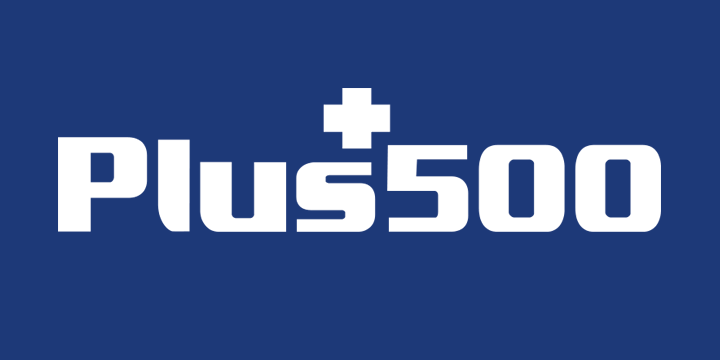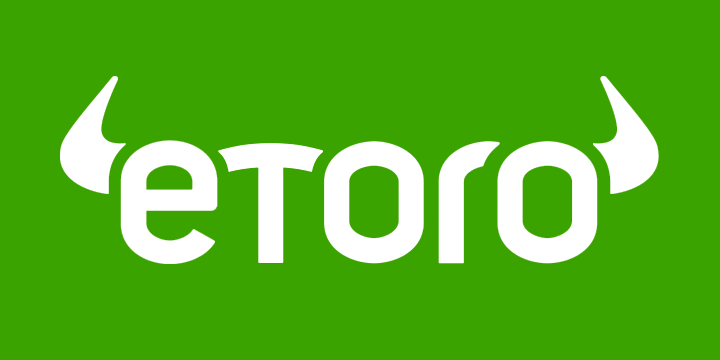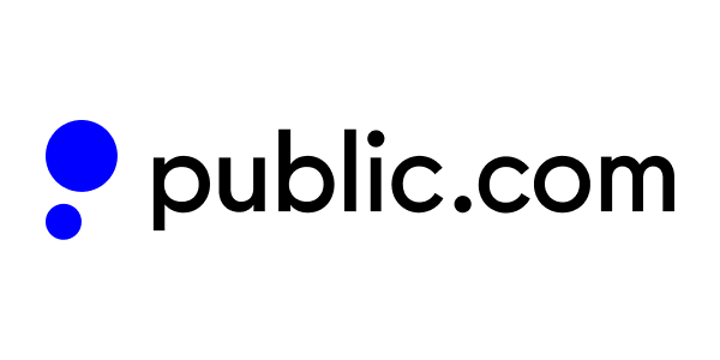Top 7 Best Practice Demo Trading Accounts & Apps 2024 - Invezz
- Get link
- X
- Other Apps
Our experts rate, review & test the top risk-free demo accounts to find the best place to practice trading safely.
Updated: May 8, 2024
Listen
0:00 / 15:49
Invezz is an independent platform with the goal of helping users achieve financial freedom. In order to fund our work, we partner with advertisers who may pay to be displayed in certain positions on certain pages, or may compensate us for referring users to their services. While our reviews and assessments of each product are independent and unbiased, the order in which brands are presented and the placement of offers may be impacted and some of the links on this page may be affiliate links from which we earn a commission. The order in which products and services appear on Invezz does not represent an endorsement from us, and please be aware that there may be other platforms available to you than the products and services that appear on our website. Read more about how we make money >
A demo account or virtual trading account is a feature where you can trade with 'fake' money. These practice accounts offer a risk-free environment where you can experiment, learn, and refine your trading strategies without the pressure of real financial stakes.
In this guide, we compare the best trading platforms with demo accounts available, meticulously selected to cater to beginners seeking a hands-on approach to understanding the markets.
Our commitment is to provide you with unbiased, expertly curated information. Our rankings are based on rigorous analysis and a deep understanding of what new traders need. Learn more about how we rank and why you can trust our rankings.
Read on for the 7 best demo trading accounts and find out where you can practice stock trading for free.
Best demo stock trading accounts overall for 2024
Copy link to section- Plus500: Best for international CFD trading*
- eToro: Best for beginners, copy-trading & demo-account
- Public: Best for sharing beginner trading ideas
What are the best demo trading accounts to practice with?
Copy link to sectionOur experts rate IG Markets as the best demo stock trading platform. It offers a realistic trading experience on a large range of assets, with no deposit required.
Here are more top platforms with free demo trading accounts.
Sort by:

Min. Deposit
$ 100
Best offer
User Score
9.9
Trade +2000 CFDs on Shares, Options, Commodities & more
Unlimited risk-free Demo Account
0 commissions & attractive spreads with up to 1:5 leverage
Payment Methods:
Bank Transfer, Debit Card, PayPal, Credit Card, Visa, Mastercard, American Express, Trustly, Apple Pay, Google Pay, Discover, Bank Transfer: SEPA, Bank Transfer: FPS, skrillFull Regulations:
ASIC, FCA, FSA, MAS, CySEC #250/14Buy or sell stock CFDs with Plus500. 82% of retail investor accounts lose money when trading CFDs with this provider. You should consider whether you can afford to take the high risk of losing your money.

Min. Deposit
$ 100
Best offer
User Score
9.9
Up to $240 bonus!
Deposit with ACA, Wire, Pay with my bank
Invest for dividends and get payout on stocks on Ex-Dividend day
Payment Methods:
Bank Transfer, Debit Card, PayPal, Credit Card, Wire TransferFull Regulations:
CySEC, FCA51% of retail CFD accounts lose money. Your capital is at risk.

Min. Deposit
$ 0
Best offer
User Score
9.0
Get insights from millions of investors, creators, and analysts
Build your portfolio of stocks, ETFs, and crypto–all in one place
No minimum deposit
Payment Methods:
Debit Card, Wire Transfer, Check, Bank WireFull Regulations:
Cryptocurrency execution and custody services are provided by Apex Crypto LLC (NMLS ID 1828849) through a software licensing agreement between Apex Crypto LLC and Public Crypto LLC. Crypto trading on Public platforms is served by Public Crypto LLC and offered through APEX Crypto. Please ensure that you fully understand the risks involved before trading.
Top 7 demo trading platforms, compared and reviewed
Copy link to section1. Plus500. Best for international CFD trading*
Copy link to sectionFrom 0.08%
Fees
$100
Minimum deposit
3,000
No. assets
Yes
Demo/virtual account
Pros & Cons
Free demo account for every user Secure broker, licensed by top-tier regulators Wide variety of CFDs to trade Several good risk management tools
No support on trading information and education Website isn't brilliantly designed to help users find answers to their questions No MetaTrader trading platform compatibility
Overview
We love Plus500 because it is one of the industry's most transparent and reliable brokers. Its fees are clear and you'll know exactly what you will be paying before you make a trade. Its technology driven platform gives access to CFDs on over 2000 stocks.
Plus500 has something for all types of stock trader, no matter what level of experience. Its zero commission and tight spreads make it a top choice for day traders and its trading academy is packed with educational content, perfect for beginners just starting.
For accurate instrument availability, visit plus500.com.
The fees: There are no commission fees on any trades with Plus500 and it makes it money through the Bid/Ask spread. Spread starts from 0.01% and varies depending on the instrument. Additional fees include overnight funding depending on trade size and guaranteed stop orders, which add a minimum of 10% to the spread. There is an inactivity charge of £10 per month for accounts not logged in for three months.
*Based on a comparison of 60+ leading brokers and trading platforms.
Highlights
| Features | Plus500 summary |
|---|---|
| No. of tradable assets | 2800+ |
| Min. Deposit | $100 |
| ID verification required | Yes |
| Free demo account | Yes |
| Supported assets | Stock CFDs, ETF CFDs, Forex CFDs, Crypto CFDs, Index CFDs, Commodity CFDs |
| Mobile trading app | Yes |
| Web trading platform | Yes |
| Regulatory bodies | FSA, ASIC, FMA, FCA, CySEC |
| View more > | Plus500 > |
Buy or sell stock CFDs with Plus500. 82% of retail investor accounts lose money when trading CFDs with this provider. You should consider whether you can afford to take the high risk of losing your money.
2. eToro. Best for beginners, copy-trading & demo-account
Copy link to section0% commission
Fees
$100
Minimum deposit
4,000
No. assets
Yes
Demo/virtual account
Pros & Cons
Great for beginners, simple to set up and get started Competitive, industry-leading commissions Popular 'Copy Portfolios' function lets you follow top traders Excellent customer service, with live chat support provided
Comparatively high fees for withdrawals and account inactivity Does not integrate with the MetaTrader platform High spreads on some assets
Overview
We love eToro because you can trade more than 3,000 stocks, commission free. When you buy stocks on eToro, you're buying the underlying asset, which means you can earn dividends. Or you can trade fractional shares, which means you can invest in even the most expensive stock from just $10.
As well as being a broker that offers lots of investor protection, eToro offers a very social trading experience. You can easily see what's trending on the stock market every day, browse the latest analyst opinion about every one of those stocks, and copy other people's trade suggestions from your desktop or the eToro app.
The fees: Stock and ETF trades are commission free. Stock CFDs are charged a 0.15% spread and overnight fees can apply. You can deposit money for free but you have to pay $5 per withdrawal, and there's a minimum withdrawal of $30. A $10 per month activity fee is charged if you don't log in for a year.
Highlights
| Features | eToro summary |
|---|---|
| No. of tradable assets | 3600+ |
| Min. Deposit | $100 |
| ID verification required | Yes |
| Free demo account | Yes |
| Supported assets | Stock CFDs, ETF CFDs, Forex CFDs, Crypto CFDs, Index CFDs, Commodity CFDs, NFTs |
| Mobile trading app | Yes |
| Web trading platform | Yes |
| Regulatory bodies | ASIC, FCA, CySEC, FinCEN |
| View more > | eToro > |
51% of retail CFD accounts lose money. Your capital is at risk.
3. Public. Best for sharing beginner trading ideas
Copy link to section...
Minimum deposit
...
No. assets
No
Demo/virtual account
Pros & Cons
Commission free stock and ETF investing Share and compare your portfolio on a social trading platform Trade crypto, fractional shares, and alternative investments
You can't trade on margin or use leverage No forex, options, funds, metals, or bonds
Overview
We love Public because it's a social platform where you can share trading tips and get ideas from other people. Public offers 9,000+ financial instruments, including cryptocurrencies and stocks from around the world.
Alongside a community of other investors all sharing their ideas, Public offers real time news and information so that you can see the full picture before you invest. And the assets don't just include your run-of-the-mill assets; you can make alternative investments in things like handbags and comic books as well.
The fees: There are no fees for investing in stocks during regular trading hours in the US – 9.30am-4pm EST. There is a $2.99 fee for trades outside of regular hours.
Highlights
| Features | summary |
|---|---|
| No. of tradable assets | |
| Min. Deposit | |
| ID verification required | No |
| Free demo account | No |
| Supported assets | |
| Mobile trading app | No |
| Web trading platform | No |
| Regulatory bodies | |
| View more > | > |
Cryptocurrency execution and custody services are provided by Apex Crypto LLC (NMLS ID 1828849) through a software licensing agreement between Apex Crypto LLC and Public Crypto LLC. Crypto trading on Public platforms is served by Public Crypto LLC and offered through APEX Crypto. Please ensure that you fully understand the risks involved before trading.
What is a demo trading platform?
Copy link to sectionIt's a financial stock broker or trading platform that offers a way to practice stock trading with fake money. It does this by allowing you to use a demo or virtual trading account, which let you buy and sell virtual stocks in a live trading environment, without putting any real money at risk.
Demo trading accounts are also known as paper trading accounts or a 'practice account', so you might see them referred to as such. Paper trading is a throwback term, referring to a time before the internet when you would have to write down the trades you wanted to make and track the performance on paper.
How should I choose a demo trading account?
Copy link to sectionPick a service that offers you the most realistic trading experience, as that's the best way to learn. Look for demo stock trading accounts that offer the opportunity to do your own analysis and that give you the chance to review your activity to assess what you profit and loss would have been. These factors should also be considered:
- Realistic trading experience. The point of a stock trading demo account is practice, so look for a platform where the demo account trading experience reflects the real one. That means looking for a demo account where you can properly practice executing trades, using leverage, short stocks, and the ability to put in stop-loss or take-profit orders.
- Range of supported assets. You want to be able to practice on the assets that you're interested in, and get relevant information on how well your strategies work. Before you create a demo trading account for stocks, make sure the virtual platform lets you invest in the companies and countries you're most interested in.
- Verification and ID required. Almost every real-money account requires some form of verification. Demo accounts can be different, and if you don't want to supply personal details and ID just to trade digital money then look for a trading platform that allows you to sign up with just an email address and phone number instead.
- Integrated software. Many traders use specialist software like MetaTrader to make trades and manage their accounts. This is particularly relevant to FX traders and if it applies to you, make sure the day trading demo account integrates with the software so you can practice properly and get to grips with it.
- Charting and analysis tools. Performing technical analysis is an important part of making good trading decisions. You should trade on a demo account just as you would on the real markets in order to get the best out of it, so make sure you are able to do so.
- Fees for real money trading. In an ideal world, you would use a free demo trading account with the same broker as you want to use to trade for real. In that case, look for a service that offers low trading fees and which doesn't charge too much for deposits and withdrawals.
- Copy or social trading function. Copy or social trading is a form of trading wh...
- Get link
- X
- Other Apps
Comments
Post a Comment